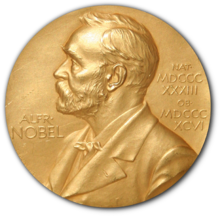

Why was Mahatma Gandhi never awarded the Nobel Peace Prize? |
- By Prateek Chakraborty
Mahatma Gandhi, a symbol of peace and non-violence in the 20th century, was never awarded the Nobel Peace Prize despite being nominated five times. Mahatma Gandhi, who played a prominent role in freeing India from the clutches of the 200-year-old rule of the British, was nominated for the Nobel Peace Prize five times - in 1937, 1938, 1939, 1947, and just days before his assassination in 1948. Despite his significant contributions to peace and non-violence, he was never awarded the prize - a topic of much debate and speculation over the years. The reasons behind this omission are complex and multifaceted. One of the primary issues was that Mahatma Gandhi did not fit into the traditional categories identified by the Nobel Committee for potential recipients of the Prize. According to the committee, he was not a politician or proponent of international law, nor was he primarily a humanitarian relief worker or an organiser of international peace congresses. Mahatma Gandhi's approach to peace and non-violence was unique and ground-breaking, which may have made it difficult for the committee to evaluate his contributions within their established framework. Furthermore, the Nobel Committee had concerns about Mahatma Gandhi's pacifism and his involvement in the conflict between India and Pakistan in 1947. Some members of the committee believed that Gandhi was too strongly committed to one side of the conflict, and there were doubts about his consistent rejection of war. These factors likely influenced the committee's decision not to award him the prize. Unlike the situation today, there was no tradition for the Nobel Committee to try to use the Peace Prize as a stimulus for peaceful settlement of regional conflicts. Another significant issue was the lack of precedent for posthumous awards. Mahatma Gandhi was assassinated two days (on January 30, 1948) before the closing date for the 1948 Nobel Peace Prize nominations. Although the statutes of the Nobel Foundation at the time allowed for posthumous awards under certain circumstances, Mahatma Gandhi did not belong to an organisation and had not left a will, making it unclear who would receive the prize money. The committee ultimately decided against a posthumous award, citing that it would be contrary to the intentions of the testator. According to an entry in Norwegian economist Gunnar Jahn's diary, the Nobel Committee had seriously considered a posthumous award for Mahatma Gandhi. But when the committee, for formal reasons, ended up not making such an award, they decided to reserve the prize. One year later, the committee did not spend the prize money for 1948 at all. The omission of Mahatma Gandhi from the list of laureates has been publicly regretted by later members of the Nobel Committee. When the Dalai Lama was awarded the Peace Prize in 1989, the chairman of the committee stated that it was "in part a tribute to the memory of Mahatma Gandhi". Courtesy: India Today, 2.10.2023 |